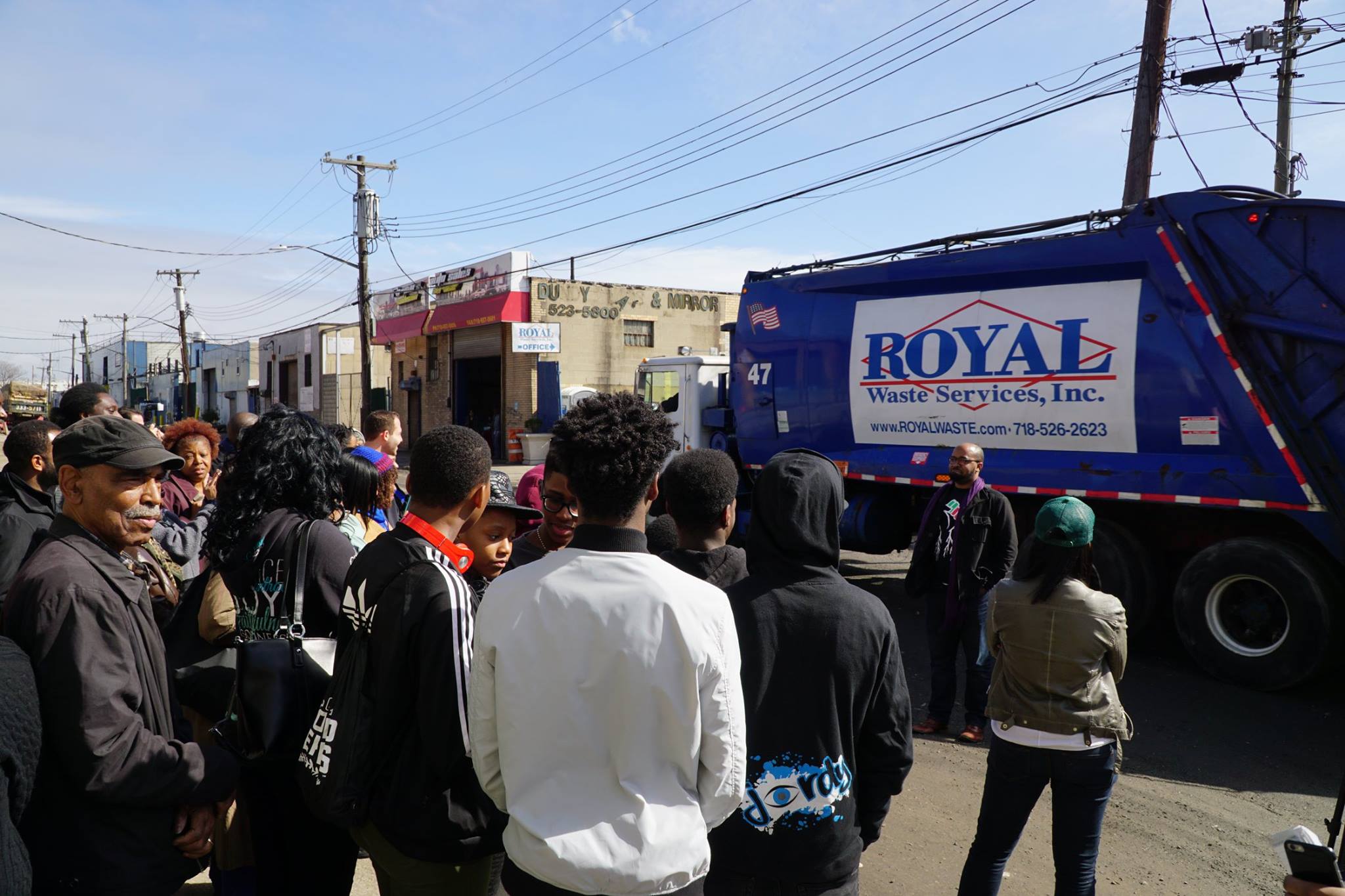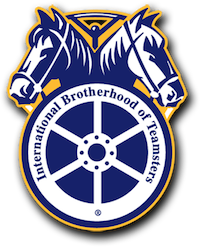
Vote on Compromise Waste Equity Bill Blocked at Last-Minute by Queens Council Member
Environmental justice advocates, community activists, faith leaders, and labor organizations condemned Council Member Daneek Miller today for blocking legislation to relieve the burden on three communities that process 75% of New York City’s trash. Intro 495-C is the latest iteration of a decades-long effort to reduce the grossly unequal burden of truck-intensive waste transfer stations on a few low-income communities of color in New York City.
Despite the support of Mayor de Blasio and a majority of Council Members, this bill will not receive a vote by this City Council after Miller blocked it.
This legislation is rooted in the City’s 2006 Solid Waste Management Plan (“SWMP”), which directed the Council to enact a law to reduce the amount of waste that facilities in overburdened communities are permitted to process.
Council Members Rafael Salamanca of the Bronx and co-sponsors Steve Levin and Antonio Reynoso, who represent the other two overburdened districts, all strongly support the bill. Yet despite this clear support for a bill that would directly benefit his district, Council Member Miller, who has co-sponsored the bill since it was first introduced in 2014, surprised his colleagues and community when he withdrew his support of the bill at the last minute.
Despite the city’s progress in constructing new marine transfer stations, the burdens of private, truck-intensive transfers stations are concentrated in a few community districts, most of which are also burdened with other polluting industries. As of 2016, 75% of the city’s waste was still processed in just four community districts, and private transfer stations in these communities retained permits to handle more than 34,200 tons of waste every day — a staggering amount far in excess of the capacity needed to process the city’s current waste stream, which is approximately half that amount.
Intro 495-C represented a modest but critical opportunity to reduce some of this excess capacity at the facilities located in in the overburdened communities, while incentivizing the private-sector transfer stations to create jobs by investing in recycling and organic waste processing equipment needed to meet the City’s zero waste goals.
Because Council Member Miller had been vocally supportive of the bill, his community remained confident that he would continue to push for it and to improve their quality of life. Miller’s change of position, with no explanation, has left many members of environmental justice communities with questions, frustration, and anger.
Reverend Andrew Wilkes, The Greater Allen A.M.E. Cathedral of Jamaica, Queens said, “We are troubled that Councilmember Miller went from championing waste equity at our Toxic Tour and Pray-In last February to walking away from Intro 495-c in a backroom discussion. The issues which prompted the Toxic Tour and Pray-In — namely, environmental injustice and demand for safe, fair working conditions — remain, and the community suffers unnecessarily when generally reliable leadership fails to exercise leadership on such a well-known grievance. In the face of continuing and preventable environmental injustice, we will work to pass strong legislation that brings cleaner air and safer streets to a community long overburdened by the waste industry.”
Angela Tovar, Director of Community Development at THE POINT CDC, “We are outraged that after decades of fighting, the South Bronx and other environmentally overburdened communities will not receive protection from waste transfer facilities. We have come too far in our fight for waste equity, and won’t rest until our communities win the relief we deserve.”
Jen Chantrtanapichate, a founder of community group Cleanup North Brooklyn in the East Williamsburg/Bushwick area, stated, “It is heartbreaking for our North Brooklyn community to hear that New York City CM Daneek Miller has been persuaded by waste lobbyists on 495-c, a bill that could improve the quality of life for thousands of families and children. It is unconscionable that north Brooklyn, south Bronx and southeast Queens families will continue to suffer due to the whims of one southeast Queens council member.”
Advocates, who have been pushing for more equitable waste processing in the City for more than 20 years, also expressed their disappointment and dismay that one Council Member’s veto stood in the way of improved air quality for thousands of people who live in neighborhoods with almost twice the asthma rate of surrounding communities.
Eddie Bautista, Executive Director of the NYC Environmental Justice Alliance said, “Justice delayed is justice denied. The fact that some Queens and Bronx elected officials apparently care more about the profits of transfer station owners than the public health of their own constituents is a recent and troubling trend for disproportionately burdened communities of color – and begs the question, ‘why?’ The failure of this bill in the closing days of this Council’s session also demonstrates a puzzling lack of support from a Council leadership that seemed unwilling to broker internal consensus to yield progressive results. We thank those Council sponsors whose honest and consistent support nearly won the day. Rest assured that this is just a temporary setback – we look forward to continuing our quest for environmental justice next session under more committed and effective Council leadership.”
McGregor Smyth, Executive Director of New York Lawyers for the Public Interest, said, “It should be troubling to all New Yorkers that seven years of good faith negotiations and efforts to solve a longstanding environmental justice problem can be subverted at the last minute by private waste industry lobbyists and a single Council Member. It’s shameful that residents of overburdened neighborhoods will continue to live with the dangers and toxic air pollution of excessive truck traffic when this bill could have provided some relief.”
The coalition who worked to advance 495-c was comprised of community, environmental and labor groups, who saw a unique opportunity to help overburdened neighborhoods while simultaneously incentivizing the waste industry to invest in green jobs and expanded recycling.
Sean Campbell, President of Teamsters Local 813, which represents private sanitation workers, said, “Council Member Daneek Miller is blocking much needed relief for working families of color who live around waste transfer stations in Southeast Queens, North Brooklyn, and the South Bronx. Private sanitation workers live in the same communities that we work in. We pay the price for pollution, traffic, and noxious smells. It is a disgrace that one council member can single-handedly block a vote and protect the polluters, after cosponsoring the legislation for four years and supporting it all along the way.”
Eric A. Goldstein, NYC Environment Director at the Natural Resources Defense Council said, “The proposed legislation was a modest first step that would have put a lid on the disproportionate dumping of so much of the city’s commercial waste into a handful of neighborhoods that bear disproportionate environmental burdens. It’s shameful that one Council member could block this sensible legislation at the 11th hour, and we’re left wondering what could possibly have motivated him to do so.”
Bill Lipton, New York State Director, Working Families Party said, “After years of negotiations, the City Council came close to passing a waste equity bill but ultimately failed. It’s disappointing that eleven years after the Solid Waste Management Plan, we still will not be able to offer some relief to the communities that bare 75% of the city’s current waste transfer capacity. The people of North Brooklyn, the South Bronx, and Southeast Queens deserve better. We are optimistic that the Council will take up this issue in the New Year.”
